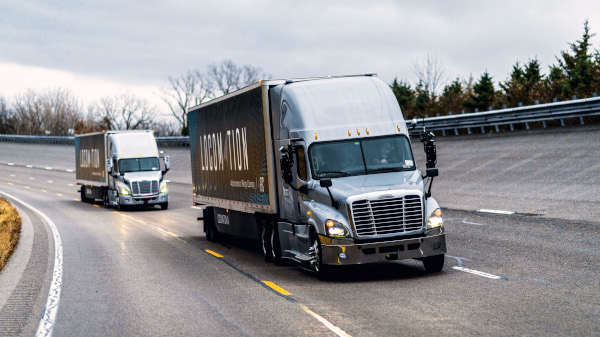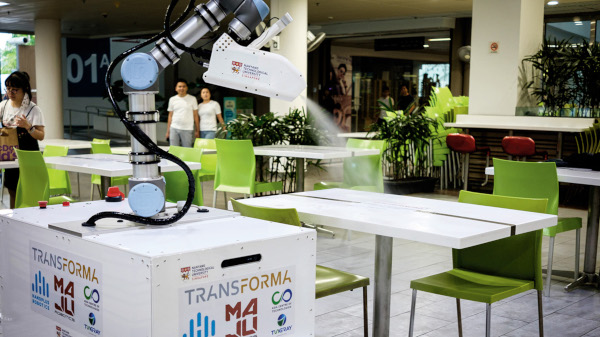
Switching from Self-Driving Cars to Trucks
During the coronavirus crisis, self-driving truck developer TuSimple’s 40 18-wheel semis were delivering much-needed freight, mail and food between Phoenix and El Paso, Texas, hauling for UPS, the U.S. Postal Services and Berkshire Hathaway’s McLane, which distributes grocery and non-food to convenience stores, wholesale clubs, drug stores and military bases.
Elsewhere, Locomation has partnered with trucking and transportation logistics company Wilson Logistics to move cargo on self-driving trucks between Oregon and Idaho. With Locomation’s Autonomous Relay Convoy (ARC) technology one driver can pilot a lead truck equipped with technology augmentation while a following truck operates in tandem through a fully autonomous system. The result: an estimated 33% reduction in operating cost per mile and 8% reduction in fuel expense.
Restaurants and Hotels
In a post-COVID world, robot waiters may greet and serve you at restaurants, ensuring that social distancing rules are followed. Robots can free up human staff who are busy taking orders. Robot duties will include serving drinks and dishes and returning used cutlery. Robotic interaction in hotels could facilitate more socially distanced models of operation to enable a safer and faster reopening and recovery. For example, robots at the check in desk can create room keys and obtain registration information.

As pandemic restrictions ease, a robotic workforce can keep our offices clean as workers safely return to their desks. Researchers from Nanyang Technological University, Singapore have developed a semi-autonomous robot that can disinfect large surfaces quickly. Called XDBOT (eXtreme Disinfection robot) it can be wirelessly controlled via a laptop or tablet, removing the need for cleaners to be in contact with potentially contaminated surfaces. Instead of a conventional pressure-spray nozzle, it uses an electrostatic-charged nozzle to ensure a wider spread of the disinfectant. XDBOT navigates semi-autonomously using LIDAR and high-definition cameras, while its arm is controlled by a human operator. It can disinfect a surface area of up to four times that of manual cleaning.
The coronavirus has provided robotics developers with the opportunity to show what can be achieved with these machines.

I3, the flagship magazine from the Consumer Technology Association (CTA)®, focuses on innovation in technology, policy and business as well as the entrepreneurs, industry leaders and startups that grow the consumer technology industry. Subscriptions to i3 are available free to qualified participants in the consumer electronics industry.